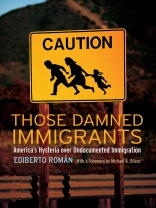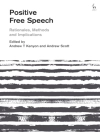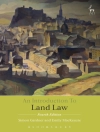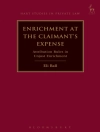Exposes the false narratives at the heart of Americans’ fear of Latino/a immigration
The election of Barack Obama prompted people around the world to herald the dawning of a new, postracial era in America. Yet a scant one month after Obama’s election, Jose Oswaldo Sucuzhanay, a 31-year old Ecuadorian immigrant,
was ambushed by a group of white men as he walked arm and arm with his brother. Yelling anti-Latino slurs, the men beat Sucuzhanay into a coma. He died 5 days later.
The incident is one of countless attacks—ranging from physical violence to raids on homes and workplaces to verbal abuse—that Latino/a immigrants have confronted for generations in America. And these attacks—physical and otherwise—are accepted by a substantial number of American citizens and elected officials, who are virulently opposed to immigrant groups crossing the Mexican border. Quick to cast all Latino/a immigrants as illegal, opponents have placed undocumented workers at the center of their anti-immigrant movement, and as such, many different types of native Spanish-speakers in this country (legal, illegal, citizen, guest), have been targeted as being responsible for increasing crime rates, a plummeting economy, and an erosion of traditional American values and culture.
In Those Damned Immigrants, Ediberto Román takes on critics of Latina/o immigration, drawing on empirical evidence to refute charges of links between immigration and crime, economic downfall, and a weakening of Anglo culture. Román utilizes government statistics, economic data, historical records, and social science research to provide a counter-narrative to what he argues is a largely one-sided public discourse on Latino/a immigration.
Sobre o autor
The late Michael A. Olivas was William B. Bates Distinguished Chair in Law at the University of Houston Law Center and Director of the Institute for Higher Education Law and Governance at UH. His books include Colored Men And Hombres Aquí: Hernandez v. Texas and the Emergence of Mexican American Lawyering; The Law And Higher Education: Cases And Materials on Colleges in Court Third Edition; and Education Law Stories (with Ronna Greff Schneider).












